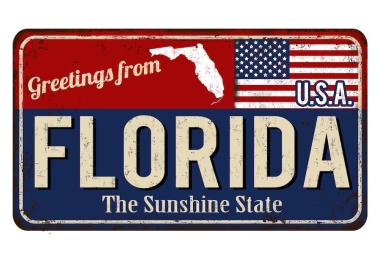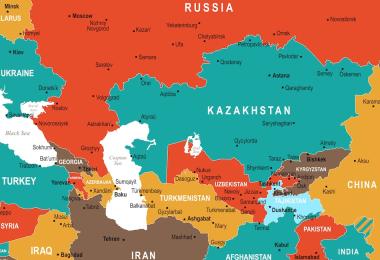In the latest OIV report, released at the end of April 2021, one graphic caught everyone’s attention. According to the organization, among 22 countries with the highest global wine consumption, eleven saw a decrease in consumption including China (-17%) and South Africa (-19%). Brazil, however, was by far the country with the highest growth, recording an increase of 18 percent (see chart).

According to Product Audit International, Brazil's largest import audit company covering the drinks sector, in 2021 this growth continues to accelerate. The rise in imports was up 43 percent in the last twelve months, from July 2020 to June 2021. According to data from UVIBRA (União Brasileira de Vitivinicultura), the official entity for Brazilian wines, in the first half of 2021, sales of domestic wines grew by 41 percent - almost the same rate as imports.
Brazil has a population of 212 million inhabitants and wine consumption of just two litres per capita in 2020 is still low by international standards, which leaves room for even greater growth. The biggest barriers in Brazil have always been price and culture. Wine carries a high tax burden. Depending on its origin and price range, it is estimated that, on average, by the time a bottle reaches Brazilian shelves its price will be five times higher than its FOB cost.
Another major barrier is the lack of wine culture, with beer still being Brazil’s drink of choice. Yet that has been changing. Wine is fashionable, and it gained momentum during the pandemic. According to data from Nielsen Consulting, which audits the retail market, wine reached 847,000 new homes in 2020, and in 92 percent of cases, it replaced beer.
The Brazilian market represented around 500 million litres in 2020, around 70 percent of which are Brazilian wines, which lead in the lowest price ranges, especially in wines retailing up to US$4. In imported products, the leader by far for over 20 years has been Chile, which holds a 47 percent share, and in the first half of 2021 sent 3.8 million 9-litre cases to Brazil. Second place has been fought over between Portugal (16.5%) of which Brazil was, of course, a colony, and Argentina (15.8%). Next come Italy (7%), Spain (5%), France (4%) and Uruguay (2%). The average import value of a 9-litre case was US$24.57 in 2020. It is important to note that imports from Chile, Argentina and Uruguay benefit from all four nations' membership of Mercosur.
Notable Importers
To choose the names highlighted here, we consulted 15 highly regarded members of the trade in an informal poll.
For this category only importers with strong presence in the on- and off-trade channels were considered. Unlike mature markets where distribution is segmented, in Brazil many importers operate a multiple channel operation. Top names mentioned in the survey were Mistral, followed by Decanter Vinhos and World Wine, all of which have built portfolios that excel in quality and possess strong nationwide presence in the on-trade, direct sales to consumers and online channels.
Mistral was founded in 1973, and in 1991 was acquired by its current owner, Ciro Lilla, a great connoisseur, who like few others, had a vision of wine as a business. Mistral is one of the top ten importers in volume, but its focus is not quantity but quality. It has the largest and best wine portfolio in the country, with around 3,500 labels, including big names such as Vega Sicilia, Gaja, Catena, Drouhin, and Faiveley – among many others – living up to its slogan 'Mistral, the importer of best wines.' If this were not enough, in 2007 Ciro Lilla founded another importer called Vinci, in order to be able to expand and improve his portfolio. Mistral and Vinci (which already has 1,500 labels), operate nationwide, in all market segments. They perform strongly in restaurants and in direct sales to consumers through their online channels, which grew considerably during the pandemic.
Notable E-Commerce
The dot-com segment in Brazil is largely dominated by two companies – Wine and Evino – leaving the others far behind.
Wine.com.br is the isolated leader in the wine e-commerce segment. Founded in 2008, the company now belongs to two financial groups and recently acquired the import company, Cantú, for around US$35m, in a deal that made national media headlines. One of the top ten wine importers in volume, Cantú, operates in traditional channels with more than 15,000 points of sale, thus placing the e-commerce giant in the offline world.
Wine.com has just released the financial result for the first half of 2021 and, together with Cantú, recorded a growth of 53.8 percent compared to 2020, with a net income of around US$57 million. Wine also entered the retail business and already has 13 wine stores throughout Brazil and is the leader in wine clubs, with 270,000 active subscribers.
Notable journalists
In our poll, we asked about notable journalists working in online media, printed media or social networks. The most recognized name was myself - Marcelo Copello – followed closely by Jorge Lucki.
The duo, who have been operating for over three decades, left the others far behind. Other notable journalists mentioned were Suzana Barelli, Didú Russo, Ricardo Castilho, Pedro Mello e Souza, Marcel Miwa, Cecilia Aldaz and Choro da Videira.
Jorge Lucki and I both debuted in the mainstream media in 2000 with weekly columns in competing publications, the two largest financial newspapers in the country. Lucki continues to write for Valor Econômico, while I used to write for Gazeta Mercantil, which ended its activities in 2009. Both of us operate daily radio shows, have published books, and are sought-after speakers.
I currently maintain a column in the largest generalist magazine in the country, Veja, in the Veja São Paulo and Veja Rio sections, in addition to multiple activities related to content and events.
Notable media
Wine has become present in the Brazilian media in general, both in print and online publications, specialized or not, with enormous and growing weight in social media, notably Instagram, which has around 100 million users in Brazil. Those chosen as the most relevant, however, are Prazeres da Mesa followed by Adega, print magazines specializing in wine and gastronomy.
Prazeres da Mesa magazine, founded in 2003, is the leader in the gastronomy segment, with a select team of collaborators and a strong presence in the world of wine. The publication, which has national print distribution and a digital version, is also active in wine and gastronomy events across the country.
Notable wine events
Prior to the pandemic, wine events dominated the scene. This trend, which shifted to online formats like everywhere else, promises to return full-force to in-person events globally at the end of this year, especially for consumer events.
The leading events mentioned in the survey were Rio Wine and Food Festival, Wine South America, and ProWine São Paulo.
The first is a big wine festival, with ten days of events around the city of Rio de Janeiro bringing together more than 70,000 people. The focus is mainly on consumers, though some events for professionals are also included. The next annual edition, the ninth, has not yet been scheduled, due to the pandemic.
Wine South America and ProWein São Paulo are large trade fairs, branches respectively of Vinitaly and ProWein Düsseldorf.
Wine South America, which is in its third edition, takes place in Bento Gonçalves, in southern Brazil and the heart of domestic wine production. It has a strong presence of local wineries, but is also well-regarded by national and international trade. The event will not take place in 2021 but has already been scheduled for September 2022.
ProWine São Paulo, which had a pilot edition in 2019 under the name ProVino, has its highly-anticipated first edition scheduled in October of this year.
In a survey of 1,000 wine professionals and consumers that I conducted in Brazil, which is still unpublished, I asked when they intended to return to in-person wine events. The majority (33%) answered "only in 2022," followed by 15 percent responding that they intend to return in October, 13 percent in September, six percent in August, six percent in November, and five percent in December.
Notable sommeliers and restaurants
As elsewhere, the bar and restaurant segment is one of those suffering the most in Brazil during the pandemic. Tens of thousands of establishments have closed their doors in the last year across the country. The segment, however, survives, adapts and renews itself, remaining extremely relevant to the wine market.
São Paulo is one of the gastronomy capitals of the world, with around 10,000 restaurants before the pandemic, several that are internationally recognised, including in the form of Michelin stars.
As a standout among sommeliers, Manoel Beato remains the biggest name, at the head of the Fasano restaurant, the cathedral of wine and gastronomy in São Paulo. Beato is a celebrity, with a radio show, books, and a newly launched wine club. Fasano's wine list is neither extensive nor filled with expensive wines, but its best customers bring very rare bottles from their private collections to be opened by Beato.
Other reference restaurants and sommeliers in São Paulo are: D.O.M., by Alex Atala, the most famous Brazilian chef in the world, who has a wine list led by sommelier Gabriela Monteleone, a lover of natural wines; and O Maní, by award-winning chef Helena Riso, with a wine list very well prepared by sommelier Gabriela Bigarelli. As a new talent, sommelier Camila Ciganda is also gaining attention at Barú, a seafood restaurant, where she is helping Brazilians discover white wines, in a market largely dominated by reds.
Also noteworthy are the two bars: Bardega, which offers 96 labels from Enomatic machines for tasting and drinking, and Sede261, which is temporarily closed due to the pandemic, but will reopen in September. This wine bar, owned by sommeliers Cassia Campos and Daniela Bravin, is a peculiar place, as it does not have a wine list and only one table. Customers can stand on the sidewalk and sample a range of discoveries that changes throughout the week and has been carefully curated by the owners.








